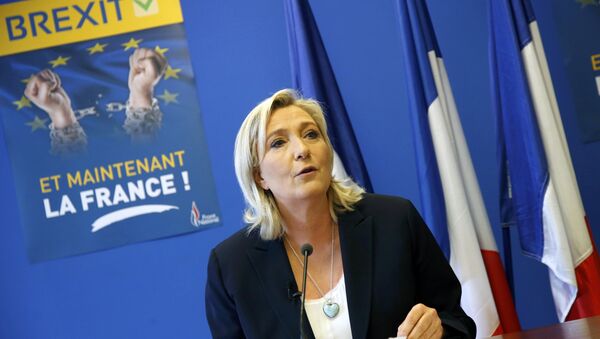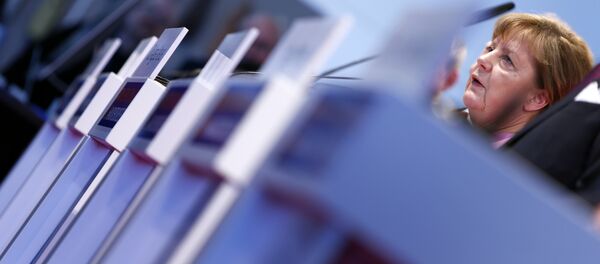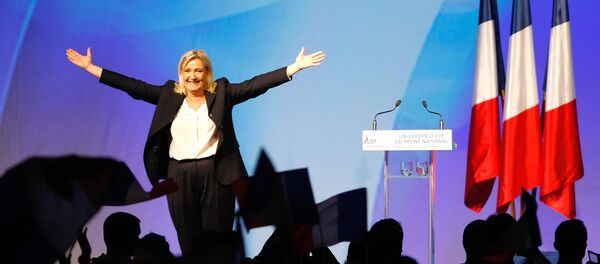Observers suggest the AfD's success in the northeastern German state has largely to do with their opposition to the federal government's open door immigration policy, which has caused Chancellor Merkel's approval ratings to plummet. Germany has been hardest hit by the refugee and migrant crisis that struck Europe in recent years, taking in over a million asylum-seekers from the Middle East and North Africa last year, and an estimated 300,000 more so far in 2016.
Commenting on the AfD's political breakthrough, which saw them receiving seats in the local parliament for the first time in history, Marine Le Pen, leader of the French conservative nationalist and Eurosceptic party National Front, congratulated the young party, and emphasized the significance of its victory over the federal ruling party.
Ce qui était impossible hier est devenu possible: les patriotes de l'AFD balaient le parti de Mme Merkel. Toutes mes félicitations! MLP
— Marine Le Pen (@MLP_officiel) 4 сентября 2016 г.
"What was considered impossible yesterday has become possible today: patriots from AfD have swept Merkel's party. Congratulations!" Le Pen wrote on her official Twitter page.
Like the AfD, Le Pen's National Front is opposed to open-door immigration policy, is skeptical of EU institutions, and is critical of creeping Islamization, which they see as a threat to France's national identity.
Sunday's election results are expected to translate into 26 seats for the SPD, 18 for AfD, 16 for Merkel's SDU, and 11 for Linke. The final results will be published on Thursday.
France will hold presidential elections next spring. Last month, opinion polling showed Le Pen leading with 30% support; President Francois Hollande is polling at less than half that number.





